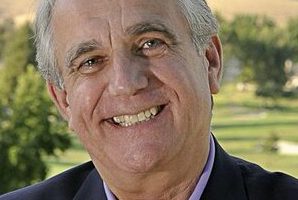Column: CEO Learnings
“It’s Not Useful to Spend Time Thinking About the Future – that is, Beyond Lunch”
Paul Kalanithi, M.D., was the neurosurgical chief resident at Stanford when, in May 2013, he was diagnosed with stage IV metastatic lung cancer. His New York Times best-selling book When Breath Becomes Air is a memoir about his life and his illness. He joins Randy Pausch, “The Last Lecture,” and Mitch Albom, “Tuesdays with Morrie,” by guiding us through the sludge of life—“petty materialism,” self-importance and trivial pursuits—to discover our real purpose and the meaning of life.
Books like these are popular because they stop us in our tracks. They speak to an undeniable truth about life—death comes for all of us.
Most lives are lived with passivity towards death—it is something that happens to you and those around you. Few examine it, wrestle with it, and accept it. Kalanithi does.
In When Breath Becomes Air, Kalanithi shares his journey to acceptance of death as both a physician and as the patient. Important things are said, carrying the urgency of a race against time for all. What will remain once we are gone? What are the ways you’ve affected or touched other people?
Kalanithi felt a calling to become a surgeon. He pursued a career in medicine to “bear witness to the twinned mysteries of death, its exponential and biological manifestations: at once deeply personal and utterly impersonal.” Personal, medical, and spiritual are all intermingled.
Medical school sharpened his understanding of the relationship between meaning, life, and death. He had a love and empathy for those who suffered, for what they endured and for what he might bring to bear as they navigated their individual experiences.
Kalanithi had a fierce belief in the moral dimension of his job. He trained for years to actively engage with death, and in doing so, to confront the meaning of life. He noted that doctors in highly charged fields such as neurosurgery meet patients at “inflected moments, the most authentic moments, when life and identity are threatened; (it was their) duty to learn what made a particular patient’s life worth living, and to save those things if possible—or to allow the peace of death if not.
“Our patients’ lives and identities may be in our hands, but death always wins. Even if you are perfect, the world is not. One needs to know that the deck is stacked and you will lose. Such power required deep responsibility, sharing and guilt and recrimination.”
Like most scientific types, Kalanithi came to believe in a reality where God was an outmoded concept. But then, with his illness, Kalanithi, who had been raised a devout Christian (his father was a Christian and his mother was Hindu), came back to Christianity.
He then came to realize that love, hate, and meaning were banished in a world without God and where science was the arbiter of metaphysics. Believing in science provided no basis for God and in turn, no basis for meaning.
“Science is predicated on its inability to grasp the most central aspects of human life: hope, fear, love, hate, beauty, envy, honor, weakness, striving, suffering, virtue.” No system of scientific thought can then contain the fullness of the human experience.
The basic reality of human life stands compellingly against blind determinism. “There IS A STRUGGLE toward the capital T, Truth, but the task is impossible. Verification is impossible. Each of us can only see part of the picture. Human knowledge is never contained in one person. It grows from the relationships we create between each other in the world, and is still never complete. Truth comes somewhere above all of them.”
As Kalanithi’s illness progressed, the time of day meant nothing. A paradox as “medical training was relentlessly future-oriented, all about delayed gratification; you’re always thinking about what you will be doing five years down the line.” Now with a stage IV cancer, he had no idea of what he would be doing five years down the line… “It’s not all that useful to spend time thinking about the future—that is, beyond lunch.”
“Everyone succumbs to finitude. Most ambitions are either achieved or abandoned; either way, they belong to the past. The future, instead of the latter toward the goals of life, flattens out into a perpetual present. Money, status, all the vanities the preacher of Ecclesiastes describes hold so little interest: a chasing after wind, indeed.”
What wisdom would we impart to the world if we knew it were our last chance? With When Breath Becomes Air, we now have Kalanithi’s. His message is simple: Think about how you will give an account of your life.
What have you done with the life that was given to you?
————————————-
BUY NOW FROM AMAZON:
————————————-
Thomas M. Loarie is a seasoned and pioneering CEO in the medical device field and a senior editorial advisor and columnist for Catholic Business Journal. He may be reached at TLoarie@CatholicBusinessJournal.biz
View Articles Thomas M. Loarie is a popular host of The Mentors Radio Show, the founder and CEO of BryoLogyx Inc. (BryoLogyx.com), and a seasoned corporate... MORE »


